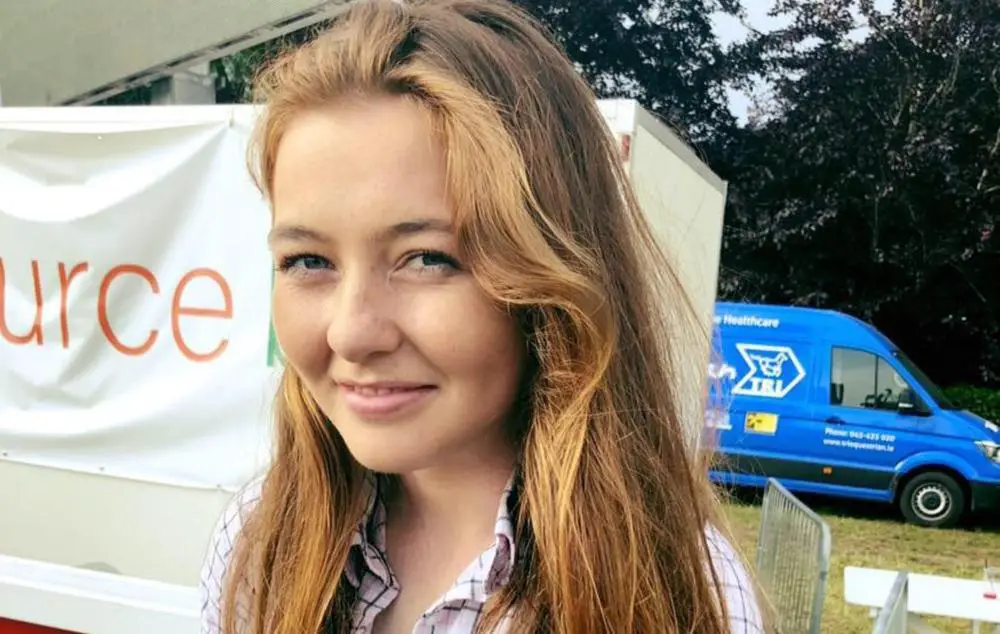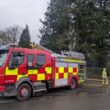
A murder trial got underway last month, almost four years after the horrific events which led to Katie Simpson’s death.
Within 24 hours of the details first being opened to a jury, the trial sharply ended even before the case outline was completed, when Coleraine Crown Court was informed Jonathan Creswell had been found dead.
The jury was sworn in on Monday, April 22 for his trial into Katie’s rape and murder, and during which he was seated in the dock listening intently to proceedings, at one point objecting to a particular juror and having them stood down.
The jury was sent home for the day and evidence began at midday on April 23.
Read more: Officers probing death of Katie Simpson in 2020 ‘committed misconduct’
While the details of the PSNI bodyworn footage and recorded calls to and from NI Ambulance Service were harrowing, they were also revealing.
It was clear to most observers there were suspicious circumstances, not least the timings and explanations proffered by Creswell, and latterly those who surrounded him in the aftermath.
After leaving his children with his mother that morning he was chatting casually on the phone to co-defendant Hayley Robb, in a conversation, it is now believed was, to keep her talking.
As he allegedly stepped through the front door of his home he screamed: “Katie’s hanging. Call an ambulance.”
In Ms Robb’s 999 call, played in court, she was shocked but managed to provide Creswell’s full address including house number and postcode – something he twice later appeared to struggle with.
The ambulance was dispatched to Gortnessy Meadows while call-handlers tried to ring Creswell on the number provided by Ms Robb.
He didn’t answer.
Attempts continued and he finally answered while driving to hospital with Katie’s lifeless body slumped in the passenger seat beside him.
He sounded frantic and distracted and the call handler promptly told him to pull over immediately and start CPR.
Calmly, she explains how to do this, telling Creswell where to position his hands and counting out, 1, 2, 3 4 in a steady rhythm.
Creswell is counting too – but not carrying out CPR.
In a galling commentary he says: “The poor girl. Poor wee darling. She’s only 20.”
He tells the call-handler he has placed Katie flat on her back, which he hadn’t.
Between counting, Creswell says: “Ah no Katie darling … I think I’m hurting her.”
He counts on before saying: “Ah my God. There’s nothing happening here. Nothing.”
Paramedics arrive on the scene and Creswell tells them: “I just came back and she was hung.”
In court prosecution counsel, Sam Magee KC, told the jury: “You may think that was a man focused on trying to save a life. But in that call, just when the chest compressions start with two hands, at that moment Katie’s phone, which was in Mr Creswell’s possession all night, comes to life. It was activated, unlocked and switched to flight-mode. Why would he do that?”
Why indeed? Importantly why was this not picked up on? In fact, why was the absence of Katie’s phone thereafter not of critical importance?
That phone would not be found until Creswell was arrested seven months later when he finally admitted retaining it.
Also, Mr Magee told the jury how paramedics noticed “Katie wasn’t breathing, had no heartbeat and with only underwear on the lower half of her body. There was reddening about her neck and a small mark to the front.”
All this was more than sufficient to point to at least suspicion, and this is where the questions really start.
The PSNI have consistently refused to answer basic questions into this case, such as when the murder inquiry was officially launched.
The response to this was: “As court proceedings are still ongoing in this case, we are unable to comment at this time.”
It was pointed out this would not prejudice a fair trial but the PSNI refused to engage further.
A Freedom of Information request, however, submitted around the same time freely confirmed the murder inquiry was launched on January 21, 2021.
It also revealed officers at the scene sought CID input on August 10, 2021 – the day after Katie’s death – which was ultimately refused.
A follow-up Freedom of Information request, as to who within PSNI blocked the Press Office from answering the questions and why, is awaiting response.
But the spectrum of questions are now much broader and span multiple agencies.
Why, for example, were the first police dealing with the incident not listened to? Why was the requested detective-level input refused and by whom? Who exactly deemed Katie’s death non-suspicious?
Why were police in Strand Road PSNI station refusing to take reports of Creswell’s previous convictions, his manner with women, his propensity for choking, seriously?
Why, after a sustained and often bitter campaign leading to a different PSNI investigation, did those reports to police, while Katie lay in ICU, suddenly vanish from the case log?
Attempts to obtain copies of these became another battle after the PSNI claimed they held nothing on the system to that effect.
The reporting parties proceeded to copy the information held at their end and send them to the Chief Constable and the reports mysteriously resurfaced.
Then there were the concerns of medical staff one of whom stated he had never encountered anyone putting a person, “unresponsive and not breathing into a car and driving them to hospital”.
Staff were perturbed by Katie’s presentation which was not aligning with Creswell’s account of hanging and his “vague” accounts of what allegedly happened.
The Western Health and Social Care Trust have been repeatedly approached about the case, the most recent being last week with proceedings against Creswell effectively concluded.
The Western Trust was asked if an Serious Adverse Incident (SAI), or any other review/investigation, has been carried out into the handling of Katie’s case while being treated in Altnagelvin Hospital, particularly into her presentation as an alleged hanging victim but the refusal to permit medical staff to raise concerns, coupled with numerous previous admissions to hospital for violence-type injuries, alongside concerns of Creswell’s conduct, his explanation for what he claimed occurred and suspicions of domestic abuse?
Also, was there an SAI into the living conditions/domestic circumstances at the scene of the incident (Gortnessey Meadows) in which concerns were previously raised with Social Services around two very young children residing there?
Finally, what if any procedural/policy changes or practices have been introduced for medical staff raising concerns/suspicions around potential non-accidental injuries, particularly in a domestic abuse situation, since Katie’s death?
As with all enquiries in this matter over the last three years the Western Trust was “unable to provide further comment” as the Coroner’s case is ongoing.
However, back in 2021, in the months after Creswell’s arrest, the Western Trust was asked if it holds a policy or guidance for medical staff reporting concerns on patients presenting or admitted with injuries which do not correlate with the explanations offered?
Is there a system of direct contact by the medical staff expressing concerns with police or is this done via and or with the approval of a senior?
Finally, can a senior member of staff overrule the concerned member of staff and close the issue down?
A spokesperson pointed to protocols within “a cross directorate service (which) are clear directions to staff about what they should do if they suspect a crime, for example, and a number to contact in the event of needed support with a query.
“The protocols make it clear that if a staff member thinks that a crime has been committed that they should contact the police. Working in health and social care does not alter the normal duties of a citizen to report a crime.”
So what happened in Katie’s case?
The questions continue to mount and answers are not forthcoming, and that will only ever compound existing concerns.
As matters stand, it appears only public inquiry, compelling all agencies involved to provide evidence, will establish the facts.
It’s already tragic that the circumstances of Katie’s death and cover-up remain largely unknown, but that is manifestly intensified by the failures of statutory agencies entrusted to uphold justice and human rights, and whom the public are fully entitled to demand – and receive – answers.





